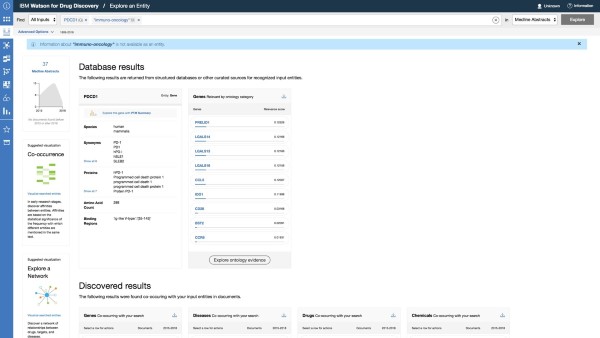IBM’s Watson for Oncology, an artificial intelligence-led diagnosis program, is quickly losing popularity, just after a couple of years of its use in local hospitals.
Gachon University Gil Medical Center first adopted Watson in Korea in December 2016, and Pusan National University Hospital followed suit in 2017. Later, other hospitals that adopted Watson include Konyang University Hospital, Daegu Catholic University Hospital, Keimyung University Dongsan Medical Center, Chosun University Hospital, and Chonnam National University Hwasun Hospital.
However, skepticism over Watson is growing because the expensive program does not meet the needs of domestic medical situations and has low cost-effectiveness, industry sources say.
Watson, which is mainly used for cancer diagnosis, is less effective in diagnosing cancer that occurs more frequently in Asia than in the West, some critics said.
Watson shows low diagnosis match in Korea
According to IEEE Spectrum, a magazine by the Institute of Electrical and Electronics Engineers, 83 percent of 211 patients with breast cancer, rectal cancer, stomach cancer, and lung cancer at Bumrungrad International Hospital in Bangkok, Thailand, had their human diagnosis and that of Watson matched.
At Manipal Comprehensive Cancer Center in Bangalore in India, the matching rate in 638 patients with breast cancer stood at 73 percent.
However, only 49 percent of 656 Korean patients with colon cancer at Gil hospital had their Watson diagnosis matched to that of a human doctor.
Besides, the expensive program is not recognized as a medical device in Korea and hospitals offer Watson as a secondary service which makes hospitals shun the program, observers said.

Watson loses popularity, hospitals give up contract renewal
Some of the hospitals that already adopted Watson have decided not to extend the contract any longer. Pusan National University Hospital, which began Watson service in January 2017, said it would not renew the two-year contract that ended early this year. Keimyung University Dongsan Medical Center also gave up the contract renewal after a one-year pilot use of Watson. Chonnam National University Hwasun Hospital is using Watson as the contract has not expired yet. However, the hospital is not enthusiastic about it, either.
“We introduced Watson but have not used it as much as we thought. I think human diagnosis based on accumulated patient data is better than using Watson,” an official at Chonnam National University Hwasun Hospital said.
Physicians said they had expected Watson would not thrive.
“Even if doctors use Watson for diagnosis, they can’t make extra profit. It’s not even accurate. In the early stage, hospitals used it for marketing. However, now, they are turning their backs because they could not earn enough to make up for the initial investment money,” a source in the medical community said.
Martin Kohn, the former chief medical scientist for IBM Research, said in the IEEE Spectrum that IBM’s technology proved significantly influential but not appropriate in clinical aspects.
“Prove to me that it will do something useful—that it will make my life better, and my patients’ lives better,” he said.
IBM recently announced that it would no longer develop and sell Watson for Drug Discovery product.
IBM spokesperson Edward Barbini said in an email to Medical News Journal Stat that the company would continue to support existing clients but not take any new clients. He attributed the discontinuation of the development and sales of Watson for Drug Discovery to poor financial performance.
Watson helpful as decision-making assistant in multidisciplinary treatment
Some physicians said Watson was instrumental as a decision-making assistant in interdisciplinary treatment.
Kim Jong-yeop, head of the Healthcare Data Science Center at Konyang University Hospital, said Watson was part of clinical decision support system (CDSS). “Watson does not make a final call, but physicians check with Watson to give more thoughts,” he said.
Bae Sung-hwa, a professor at the Hematology and Oncology Department of Daegu Catholic University Hospital, also said he used Watson as an assistant for decision making in multidisciplinary treatment.

